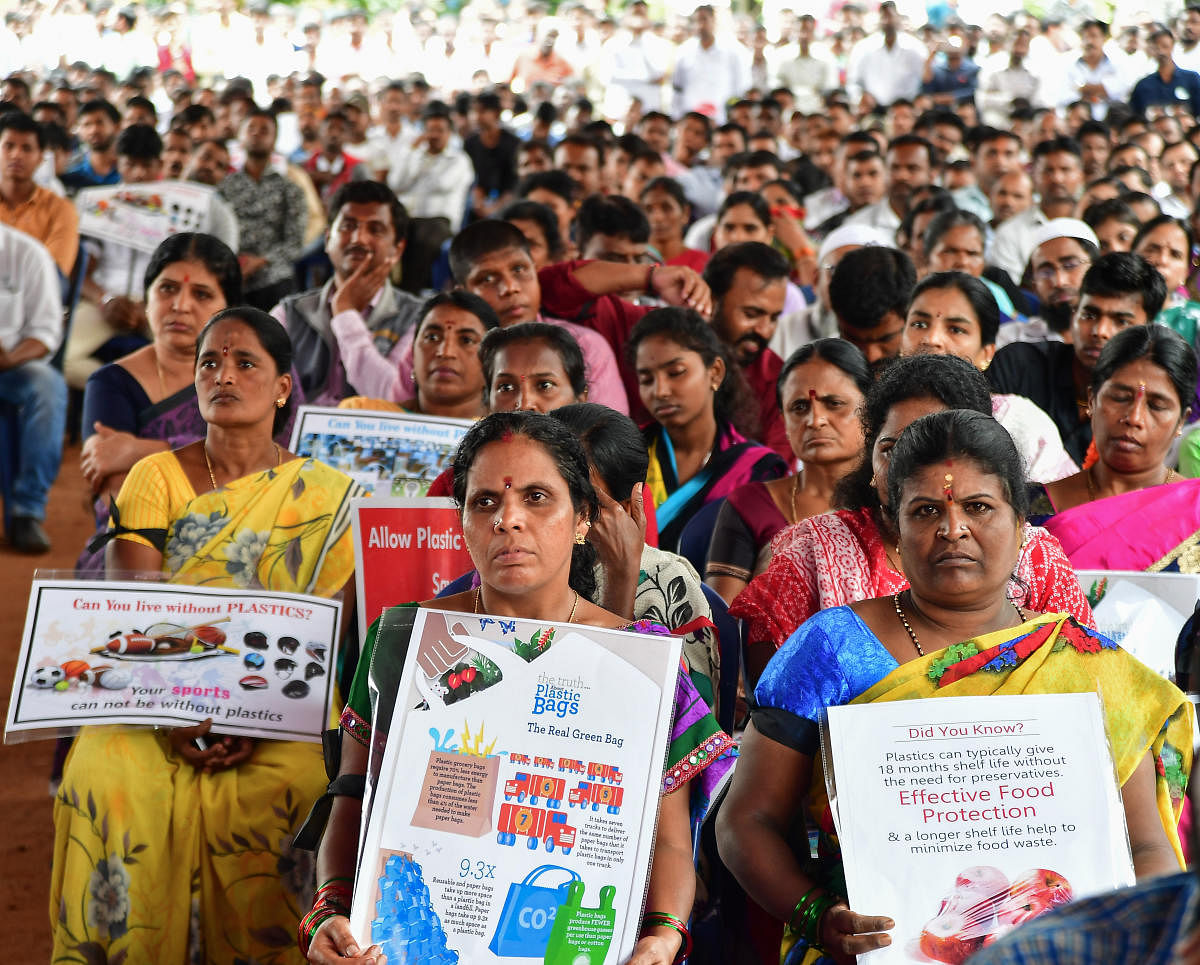
When the BBMP issued a notice to wedding halls last week reasserting a ban on plastic, it also made an unexpected request: prohibit the use of plantain leaves. According to N S Ramakanth of the Solid Waste Management Round Table, plantain leaves take a long time to decompose and pose challenges to wet waste management. Many Bengalureans, however, have long viewed the leaves as traditional, eco-friendly solutions to the plastic menace.
“In the past, in wedding halls, we used to use leaves as plates, and stainless steel reusable glasses. But as years went by, people started using the plastic plates and thermocol. At the end of the day, leaves can be used as compost for plants to grow. In Kerala, if you go toward the South, they still use leaves—and even throw it under a tree afterward,” says Meeliya, a corporate employee.
Twenty-three year-old HR professional, Swetha G echoes Meeliya’s thoughts, reflecting fondly on weddings that featured plantain leaves. “In my childhood, I used to see the leaves. For long, people have been addicted to plastic. But for me, using leaves is better than using plastic.”
If a ban should be implemented at all, Swetha suggests that it be instituted at the manufacturing level: “People are still not changing, and factories are still producing plastic. That should be banned first, and then this will stop.”
For many people, however, change will not happen without a financial incentive. “We haven’t really found a proper substitute to plastic. People are talking about eatable cutlery, but it’s very expensive. We need to find a substitute that is cheaper. We have paper coverings, paper bags—all those things. If something is available at the same price, people will use it,” says Rani N R, an accountant.
Some wedding venues are optimistic about the price of reusable plates and glasses. “Right now, the alternative material is priced way higher than its plastic counterparts, which obviously creates a big dent in profitability. However, we feel that this high price could be shortlived due to the sudden demand,” says Lalit Hotel representative, Sandhya Nair.
A representative of Elements Celebrate says caterers would bear the brunt of this cost. However, over time, the switch to reusable systems would save money. “In the long term, this wouldn’t be more expensive if you have your own plates and a machine cleaning system,” she says.
Since the official enforcement of the ban in March 2016, Rajesh, who operates from New Thippasandra market alongside several wedding halls, estimates a 70% dip in sales of plastic glasses and plates. Next door, another shopkeeper reports increased sales of biodegradable plates. With the BBMP’s recent notice to wedding halls, several environment-friendly manufacturers are expecting even more business.
“Sales are expected to be going up. We are getting a lot of enquiries,” says Ravishaa, CEO of SGS Plates, which provides disposable areca leaf plates and bowls. “This was a well-awaited action from the BBMP to protect our environment.”
However, areca leaf products, like plantain leaves, have been scrutinized for the length of their decomposition time. Ravishaa estimates that the products take an average of 90-100 days to biodegrade.
Others have pointed out that the waste issue is also a byproduct of poor management. “If you see the waste management techniques, it’s not a proper function—they just throw it on the road. It just lies there until someone comes and cleans it,” Meeliya says.
Vijay Kumar, President of the Karnataka State Plastic Association, placed the blame on the BBMP, arguing that mismanagement, rather than plastic, is the real culprit. “If you don’t manage the waste, tomorrow you will ban so many other items.”
Kumar estimates that, since 2016, around 1.75 lakh plastic industry workers in Karnataka have lost their jobs. “It is the direct impact of the ban,” he points out.